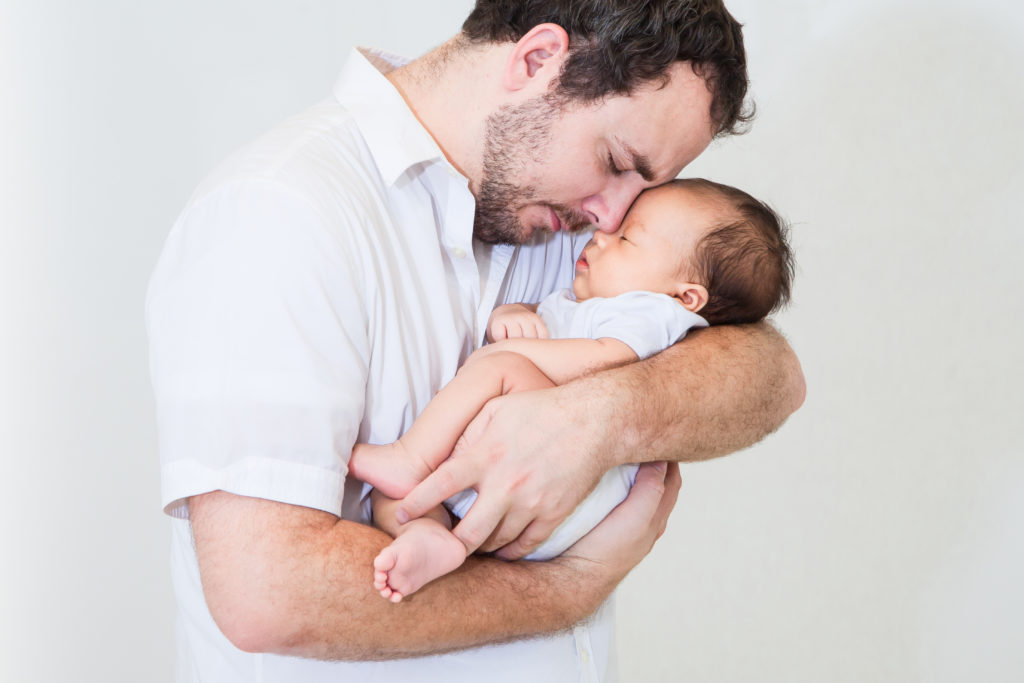Quick Hits
Daily brief research updates from the cognitive sciences

We know that mothers go through multiple physical and psychological changes after birth (and before) including change in brain structures. That may sound surprising to the uninitiated – and it is fascinating. But that has been reasonably well researched.
What, however, has not been well researched, barely at all is that of the father. There have been some psychological studies showing that men do become more caring, but also that their testosterone does also drop. Presumably to help prime the body and brain for more caring – though I reported previously on the complicated role of testosterone.
But is this matched by changes in the brain – here at leading brains we know that if there is a behavioural change there will be a biological, brain, change. And this is precisely what a group of Spanish and US researchers around Magdalena Martínez-García have found out and described in a recently published paper.
The findings are interesting also because they do not show change to some regions we might expect. For example, in mothers changes in the brain limbic regions has been noted. This region is considered our emotional centre so unsurprising. But this region did not seem to change in fresh fathers.
What was, however, seen are small changes in the prefrontal regions, particularly in areas that are associated with something called the default mode network. This is a region that is active when doing nothing but also is involved in so-called mentalizing tasks i.e. being able to think about what other people think – this could be seen as an increase in ability to empathise. Similarly, some of the changes in the prefrontal regions are in regions that are associated with social functions in human beings.
Another area that showed changes was in the visual area – this suggests a change in visual capabilities maybe referring to sensitivity in responsiveness to different visual cues i.e. of a little baby rather than hunting for deer.
The study involved 20 men whose brains were scanned before or after the birth of their first child and a control group of 17 childless men. So, it wasn’t a large scale study but gives us our first glimpse into the changes that men’s brains go through with the birth of their first child.
This hints at increased empathy, changed sensitivity to visual stimuli, and increased social functions. All in pretty good.
On a different note, in case, any of you men are worried, is that men are seen as more positive as fathers, and interestingly “manly” traits (such as strength) are still associated with fathers but also in addition with more caring traits – and this shows in the brains.

Andy Habermacher
Andy is author of leading brains Review, Neuroleadership, and multiple other books. He has been intensively involved in writing and research into neuroleadership and is considered one of Europe’s leading experts. He is also a well-known public speaker, speaking on the brain and human behaviour.
Andy is also a masters athlete (middle distance running) and competes regularly at international competitions (and holds a few national records in his age category).
References
Magdalena Martínez-García, María Paternina-Die, Sofia I Cardenas, Oscar Vilarroya, Manuel Desco, Susanna Carmona, Darby E Saxbe,
First-time fathers show longitudinal gray matter cortical volume reductions: evidence from two international samples
Cerebral Cortex, 2022;, bhac333
https://doi.org/10.1093/cercor/bhac333
More Quick Hits
Brain Scans Can Predict Your Political Affiliation
Quick HitsDaily brief research updates from the cognitive sciences rain scanning of political partisans is not new and it has long been reported that brain scans can predict political affiliation. But those studies were scans of political partisans...
Children with Same-Sex Parents Are Socially Well-Adjusted
Quick HitDaily brief research updates from the cognitive sciences his is not the first study to report that children of same-sex parents are well adjusted, there are plenty, but it is one of the first to be representative and hence gives some...
Simple Exposure to New Things Makes Your Brain Ready to Learn
ouldn’t it be great if we could learn things with no effort? Well, actually we often do, and children learn vast quantities of information, and knowledge with little to no effort – think of how well we learn languages which become fiendishly...
So, Can Cranberries Improve Memory?
tend to be hesitant to report on studies of single foods doing amazing things (because many do), but this piece of research still caught my eye. So, what did this group of researchers from the University of East Anglia find? Well, they...
The Real Problem with Social Media: It Induces Dissociative States
Quick HitsDaily brief research updates from the cognitive sciences ocial media seems to hijack our brains – or at least according to popular narratives. Most of us have experienced this where you get stuck in an endless stream of content,...
Adventurous Play Boosts Mental Resilience in Kids
o, a simple cheap way to help your kids improve all life skills and strengthen mental wellbeing. Too good to be true? Well, this piece of research, just out, finds a fascinating correlation with mental health and kids. This correlation was...






